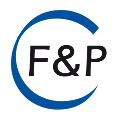Optimisation of the value chain in the field of
Supply Chain Management
Our company was founded in 2009 by experienced supply chain managers. After numerous successful supply chain mandates, our expertise in this area ranges from purchasing, material procurement, distribution and logistics to production.
Factors such as disruption and globalisation of supply chains have made it clear how valuable a crisis-proof and stable supply chain is for a company.
Whether structural improvement, or outsourcing, our experts will find the perfect tailor-made solution for you that will benefit your business.
For particularly complex projects, we are happy to put together well-coordinated supply chain expert teams that work across divisions.
- Optimisation of procurement, production and logistics networks
- Inventory optimisation (WIC), stock reduction, release of working capital, reduction of safety buffers in line with the sales situation
- Implementation of Efficient Consumer Response (ECR) or Collaborative Planning, Forecasting and Replenishment (CPFR)
- Establishment of necessary controlling tools to manage the supply chain
- Optimisation of processes, procedures and structures in purchasing and production
- Implementation of concepts by experienced interim managers
Case Studies
Here you will find current case studies of various supply chain projects.
Turnaround in Crisis
Restructuring of the manufacturing industry Mechanical engineering
Reorganisation of aluminium recycling
Within 48 hours
we suggest matching candidates to you



Fill out project request
Tell us about your project and what kind of expert you are looking for. If your project is complex and full of facets, we are your first partner to present you well-rehearsed teams.
Be connected with the right expert
Within 48 h we will send you pre-selected profiles that match your project requirements.
Select your candidate
In a video call with your selected expert, the onboarding process starts. If you are not yet convinced by the expert, we will be happy to find the right one upon request.








